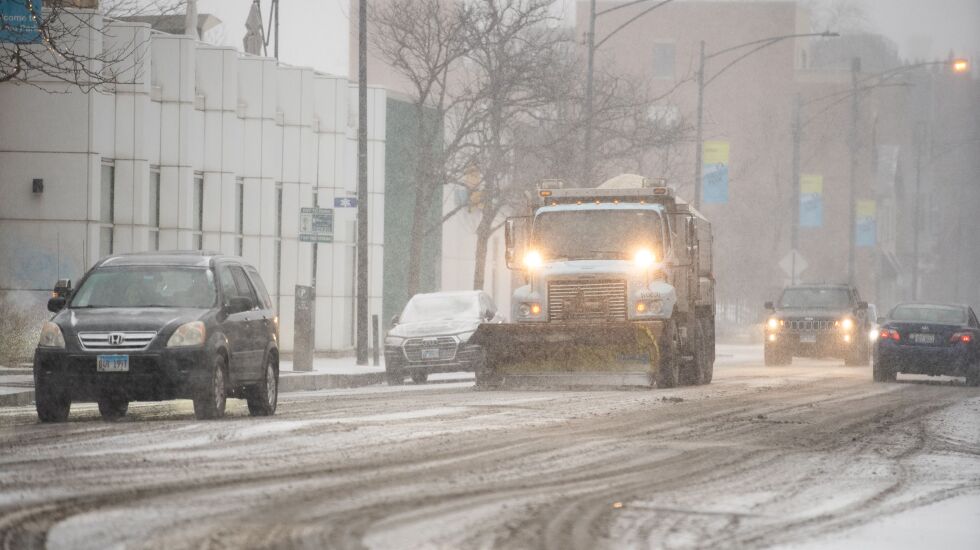
Sugar beet juice. Grape-skin compounds. Pickle and cheese brine.
No, these aren’t ingredients for a DIY face mask or an elixir to improve your gut health.
Rather, these are some things recommended by the online environmental news publication EcoWatch as sustainable alternatives to road salt for streets and sidewalks.
Road salt helps keep our neighborhood thoroughfares, highways and footpaths safe, dissolving snow and ice and reducing the probability of an accident or fall.
But it also ends up in rivers and streams, damaging aquatic ecosystems, which in turn harms the overall environment, as Illinois RiverWatch Network’s Danelle Haake recently pointed out in an interview with WBEZ’s Melba Lara.
Haake’s organization is training people on how to test how much salt is in our waterways. It will come as no surprise if the resulting data points to a high concentration of chloride, as has shown up elsewhere: 84% of the urban streams the U.S. Geological Survey analyzed had rising chloride levels, and 29% exceeded federal safety guidelines for at least part of the year, according to a 2014 report. The culprit: road salt.
As a result, our drinking water is at a higher risk for contamination, leading to health problems, especially to those with high blood pressure, the U.S. Environmental Protection Agency noted in 2020.
Road salt’s corrosive effects on vehicles, bridges, and roads also cost roughly $5 billion in annual repairs, according to the EPA.
Endangering wildlife and the human population shouldn’t be taken with a grain of salt.
The city’s Streets and Sanitation Department at times sprinkles out a beet juice and salt concoction to de-ice roads. Some area suburbs and out-of-state municipalities do, too. The Illinois Department of Transportation also has a beet juice solution in its stockpile, as do its counterparts in Michigan, Minnesota and Missouri.
Neither the city nor IDOT is expected to completely cut out road salt to combat wintry conditions, but there should be a continual push to reduce the amount used by experimenting with more environmentally friendly products.
Molasses and beer waste have been thrown in the mix in other jurisdictions, while alfalfa juice and coffee grounds are other options floated by EcoWatch.
Residents can also do their part by removing snow as quickly as possible on sidewalks and driveways with a shovel or electric snow blower, so salting isn’t necessary. If a stubborn patch of ice remains, use less salt on your property or see if dried coffee grounds, sand or a heated snow melting mat can do the trick.
Icing-out road salt may not be an option just yet. But the least we can do is melt away our reliance on it.
Want to write a letter or an op-ed for the Sun-Times? See our guidelines here.







